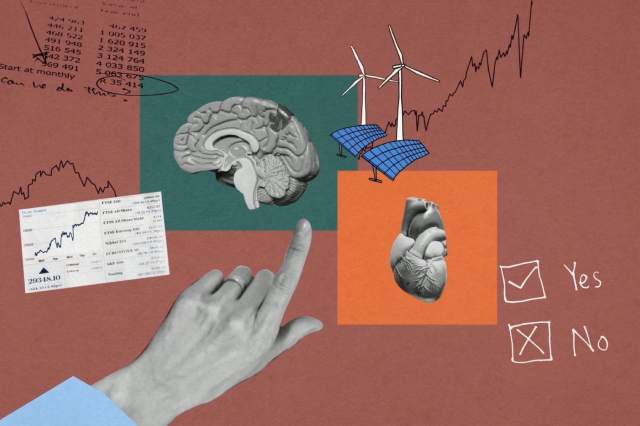ESG investing is not ethical investing
ESG: pale green and ethically passive
ESG has become mainstream in funds management but it shouldn’t be confused with ethical investment.
With ESG investments, a fund manager considers the way a company is managing its environmental and social impacts and governance as part of their financial analysis and investment process.
This branch of investment analysis is referred to as ESG integration and it is used by investment managers to gauge how ESG risks and opportunities are likely to impact the long-term financial health of companies. For example, an ESG investor looking at a company involved in coal mining will consider the risks that burning fossil fuels has for the environment. But they may still decide that it is a worthwhile investment, provided that its share price reflects this risk.
This may sound like ethical investing, but it’s not necessarily so. That’s because ESG fund managers are looking at these factors primarily to determine their impact on the company’s value and risk.
In this sense, ESG integration is ethically passive: it is concerned about the financial impact of things like pollution, poor labour practices and a lack of diversity on boards – not whether they are harming the planet, people and animals.
How ethical investing differs
Ethical investors, on the other hand, harness their power to make positive change using a range of tools. They actively seek out investments that are aligned with their agreed principles, screening them for both their positive and negative impacts.
They avoid those that don’t align with their investment principles – like cigarettes, weapons, coal-fired power and logging. They also actively seek out those that will shape a more positive future – such as renewable energy.
ESG issues can still be a useful tool for ethical managers who want to analyse the non-financial practices of companies in more detail. However, basing an investment strategy on ESG alone will never be a replacement for a truly ethical investment approach.
So while ESG is a good starting point for responsible investments, it’s important to dig much deeper to truly make a positive impact on the world. Check out this deep dive on the difference between ESG and ethical investing to learn more.
What this means for advisers
Having a clear understanding of responsible investing means you are better prepared to meet your clients’ needs and expectations.
This will help you better explain the different approaches to your clients – many of whom may be confused by the jargon around responsible investing.
And with more and more Australians wanting their money to be invested responsibly and ethically, it’s important to be prepared.



